Another busy week in national politics and also in HE policy. The government may be having a slightly quieter time while they elect a new leader but that gives us time for plenty of speculation….
Research Communications
BU is running a Research Communication Day on Thursday 20 June. The morning (from 10:30) will share tips and hints on successful communication through talks from the Editor of The Conversation and a BU academic colleague experienced in research communication. The afternoon provides choice in a series of 50 minute sessions covering everything from broadcast training, developing the impact of your research, sharing research through social media and – saving the best for last – the BU policy team will be there to talk colleagues through how to engage with policy makers from 14:30. See this intranet page to book. Please share with colleagues!
Student Academic Experience Survey
The Higher Education Policy Institute published their annual student academic experience survey with AdvanceHE. The lead press story was about disclosure of mental health concerns to parents:
The Radio 4 Today programme (Thursday) covered this story. Nick Hillman (HEPI) gave his personal view that the decision to share mental health status should be opt out rather than opt in to consent –– because it is more efficient to run a system on opt out where the majority (over 50%) of the student body consents.
Chris Skidmore answered a Parliamentary question: Q – Dr Matthew Offord: To ask the Secretary of State for Education, what guidance his Department has published on suicide prevention strategies for universities.
A – Chris Skidmore:
- Mental health is a priority for the government, which is why we have worked with Universities UK, the Office for Students, and other stakeholders in the higher education sector to develop guidance on measures to help prevent suicide. This guidance was published in September 2018, ahead of the 2018/19 academic year.
- In addition, the government has published the first cross-government suicide prevention plan for wider society. The plan, led by my hon. Friend, the Parliamentary Under Secretary of State for Mental Health and Suicide Prevention, sets out actions for local government, the NHS, the criminal justice system and the Department for Education in relation to universities. The plan focuses on how social media and the latest technology, such as predictive analytics and artificial intelligence, can identify those at risk of suicide.
There was also a parliamentary question on mental (and physical) ill health research spending.
The key findings of the report include:
- 41% of students perceive ‘good’ or ‘very good’ value from their course – this is the second consecutive year with a three percentage point improvement; 29% of students perceive ‘poor’ or ‘very poor’ value, which is a drop of three percentage points since last year and five percentage points since 2017.
- Value-for-money perceptions differ according to the characteristics of students. Those from Scotland have relatively high positive perceptions (63%) while non-EU international students have relatively low positive perceptions (37%). Recent funding changes for students from Wales have not yet had any material impact on perceptions of value for money.
- Teaching quality is the main factor for students who perceive positive value (64%) and tuition fees are the main factor for students who perceive poorer value (62%).
- Among students who say their experience surpasses their prior expectations, 59% cite the ‘right level of challenge’ as the key factor. Where students report a worse experience than expected, around one-third (35%) blame themselves for not putting in enough effort. This rises to 42% among BME students.
- A new question shows most students feel they were ‘very prepared’ (16%) or ‘slightly prepared’ (44%) for university, compared to under one-quarter who were ‘slightly prepared’ (14%) or ‘very unprepared’ (9%).
- Two-thirds of students (64%) would choose the same course and same university if they were applying again. Only 4% would opt to ‘do an apprenticeship’ and even fewer would not enter higher education to ‘get a job’ (3%) or not enter higher education to ‘do something else’ (2%).
- There have been small changes to average contact hours and workload in recent years. Since 2015, there has been a decline in independent study (15.2 hours a week to 13.8) and an increase in timetabled contact hours (13.4 hours to 13.9 hours).
- Given relatively low scores for student satisfaction with feedback in this and other surveys, a new question for 2019 asked how this might be improved. The most popular option, supported by 63% of students, was ‘more detail on why the mark was awarded’.
- Students are significantly more anxious than other young people: just 16% of students surveyed report feeling ‘low anxiety’, against 37% for all those aged 20 to 24.
- A new question on disclosing mental health issues to students’ parents or guardians finds high levels of support. Two-thirds (66%) of students support disclosure ‘under extreme circumstances’ and a further 15% support it ‘under any circumstances’.
- The results confirm students want more support from taxpayers for the costs of teaching undergraduates: 22% say Government should pay all the costs and 43% say Government should pay more than half the costs. This is out of line with the recent Review of Post-18 Education and Funding (the Augar report) on England, which says taxpayers should continue to pay half.
- For the first time, students were asked about their views on two-year degrees. While over four-in-ten students were ‘very positive’ (19%) or ‘positive’ (24%), three-in-ten were ‘negative’ (19%) or ‘very negative’ (10%) and the rest were either neutral (24%) or did not know (4%).
Policy recommendations
- A notable increase in value-for-money perceptions shows last year’s comparable increase was not just a quirk or a blip. …The most effective ways for higher education institutions to continue improving value-for-money perceptions may be to make faster progress in telling students where their fees go and further improving the quality of teaching and learning….Given the big drop in value-for money perceptions after fees increased in England from 2012, any significant reduction in fees could improve value-for-money perceptions further.
- …our results suggest schools, colleges and universities could all do more to help prepare potential students, especially in the context of a growing number of students from non-traditional backgrounds (such as first-in-family students). …The notable contrast between the idea of higher education as a time when you can be true to yourself and the specific groups that feel least well prepared, such as LGB+ students, suggest targeted interventions could also help raise preparedness.
- ….The big expansion in apprenticeships that many want to see could depend more on finding new learners rather than persuading people who are already on course for a more traditional university experience to change direction – or else, we need to convey the perceived benefits of apprenticeships more persuasively
- …the results pose a challenge to the overall idea that levels of preparedness for higher education should always be high in all respects – at least, to the extent that learning gain seems to correlate inversely with preparedness. [this is interesting – it might suggest instead that these courses need to be more stretching?]
- The Survey suggests the optimal total student workload – for example, in relation to overall student satisfaction and satisfaction with course and institution – is in the 30–39 hours category. This chimes with the evidence on the best work–life balance for people in the labour market. This level of commitment leaves more time for student activities – such as involvement in clubs and societies, part-time employment and socialising – than is available to those students with the longest working hours (such as those preparing to work in the health sector). Students with the lowest workloads of all, of under 10 hours a week, in contrast face a range of challenges that affect their quality of life and their quality of learning. Regulators may well wish to ask whether any student can secure the full benefits of higher education at such a minimal level.
- The Survey provides evidence to help explain the already well-documented BME attainment gap – for instance, there are notable differences by ethnicity in perceptions of teaching quality. It remains controversial in some quarters to suggest curricula, the make-up of academic staff and the provision of support services should reflect the changing demographics of students, but the evidence base for doing this is strong.
- The Survey adds to the growing evidence on the relationship between students’ living arrangements and their quality of life. While some students will always choose to live at home for a variety of reasons, any attempt by policymakers to reduce students’ costs by encouraging more students to live at home risks encouraging less good outcomes – unless accompanied by specific, and potentially quite costly, actions to address the challenge.
- The Student Academic Experience Survey began in early 2006 as a way of measuring how the academic experience of students changes in response to funding reforms. However, despite the big shifts in funding, most obviously for students from England and Wales, the workload of students has only changed marginally – the most notable shift being the number of timetabled hours moving from being slightly behind the number of independent learning hours to slightly ahead. Advocates and opponents of so-called ‘neo-liberal’ student funding systems may well have over-exaggerated the effect that changes to student funding have on the way students and institutions approach teaching and learning.
- For many years, one of the lowest-scoring areas in a number of student surveys, including the official National Student Survey, has been assessment and feedback on academic work. While our Survey shows modest improvements on this issue, the responses to one of the new questions could help drive greater improvements. …
- A new question on disclosure of mental health issues to a student’s parents or guardian finds high levels of support, with two-thirds of students supporting disclosure ‘in extreme circumstances’ and a further 15% supporting it ‘in any circumstances’. These results are similar to those provided by university applicants in another survey back in 2017, suggesting that views have not changed much since enrolment. Some higher education staff have, rightly, pointed out the legal and practical difficulties in disclosing mental health issues experienced by their (adult) students to others, although some have recently changed practice in this area. Our results provide support to politicians, the families of students who have taken their own lives and others, such as some university staff, who have sought to encourage debate on current disclosure practices.
- A majority of students across all four parts of the UK continue to believe the costs of higher education tuition should be covered entirely or mainly by taxpayers via the government. …
- …Nearly twice as many full-time undergraduates say they would feel ‘very positive’ about such accelerated learning if they were applying to university now as say they would be ‘very negative’ about it (19% versus 10%). There are somewhat higher levels of support among students aged over 25, who might particularly appreciate the option of taking less time out of the labour market in order to secure a degree. …
The Minister speaks
Chris Skidmore was at the launch of the HEPI survey and took a very different approach from his predecessors. Unlike Sam Gyimah and Jo Johnson, who arrived with a flock of minders and gave big speeches from the podium, notably in Sam Gyimah’s case attacking the sector for focussing on putting “bums on seats” at the expense of student outcomes, the Minister took part in a fireside chat with Nick Hillman in which he came across pretty well. He was necessarily a bit vague on policy – Augar being a question for the new PM and the spending review – but repeated his message on a 3D threshold (something he was prepared to “die on a hill” over. And he said that the “bums on seats” line should be banned, because no institution was doing that. He also failed to attack the sector on unconditional offers and grade inflation – unlike Nicola Dandridge, who spoke later and claimed credit for the OfS on progress made in the sector on both issues.
He was most animated on Research – in his role as Minister for the 2.4% [investment in R&D], being very clear that he is campaigning ahead of the spending review. And he trailed his speech on Thursday evening, the third of 4, with a focus on working with industry and IP, and commercialisation. Research Professional have reviewed that speech, so we don’t have to.
He talked about investment in research [we’ve included the RP commentary]:
- Investing in new technologies is inherently risky. If it weren’t, we could comfortably leave it to the market. But so long as the UK has R&D excellence on which we can build and so long as there is an international business case and we base our decisions firmly in expert advice, we should seek to continue to invest in emerging technologies. This is a fair risk to ask the taxpayer to bear given the enormous economic opportunities on offer.
- [This is a bold move, politically. Has anyone asked the mythical taxpayer if they are happy to pile in on this investment? If the Augar review tells us anything, it is that there is not enough public support to justify the expenditure on undergraduate teaching in England. An expensive industrial strategy requires similar levels of public sign-off. That’s why Corbyn’s question about Scunthorpe is important—that’s what most people hear when you use the phrase “industrial strategy”. Just as government and universities did not explain the student finance system enough to the public, there is a big communication job to do over the investment in the industrial strategy.]
- …we need to spell out a clear strategy for our future investment. This is crucial for the government’s commitment to spending 2.4 per cent of GDP, both public and private, on R&D by 2027—the OECD average. For we need to not only raise our investment but decide the direction of this investment and what we are aiming for.
- [Your periodic reminder of what the 2.4 per cent target really amounts to as a commitment of government spending. Figures released yesterday by the Office for National Statistics show that government spending on R&D as a percentage of GDP barely changed between 2012 and 2017, accounting for 0.59 per cent of GDP by the end of that period.]
The Minister also spoke about the Government’s recently published white paper on Regulation for the Fourth Industrial Revolution, which sets out plans to transform the UK’s regulatory system, to support innovation while protecting citizens and the environment. This followed concerns raised by industry that overzealous regulation would stifle innovation.
In related news, University Alliance members have been awarded £76m to fund the establishment of 13, new innovative research institutes and centres. Their research will be funded by a grant from the Expanding Excellence in England Fund. This is part of the government’s modern Industrial Strategy aimed at maintaining the UK’s position at the forefront of innovative scientific research.
Student Mobility
UUK published their annual student mobility report – Gone International: rising aspirations. It finds 18,510 respondents to the DLHE survey have undertaken a period abroad during their undergraduate study. This equates to 7.8% of all undergraduates with almost half of all mobility funded through Erasmus+ (49.2%).
Language graduates had the highest mobility rate of 34%, rising to 87% if linguistics students were excluded. The next highest mobility rates were for combined subjects (33%), medicine and dentistry (31%) and veterinary science (17%). Social work, computer science, sport science and nursing students are still least likely to undertake time overseas. English students were less mobile (7.2%) than the other nations.
UUK note an increase in more students from ‘underrepresented demographics’ studying abroad (including students from lower socio-economic backgrounds, black and minority ethnic (BME) students and disabled students). 5.6% of mobile students were from socio-economically disadvantaged backgrounds (9.6% of advantaged students were mobile). White students (8.3%) were more mobile than Asian (5.5%) or black (5.1%) students. Care leavers participation was 4.5%. Page 4/5 has more statistics on the other disadvantaged categories.
Most mobility was for study (75%), followed by work (22%) and volunteering (4%).
Duration:
- 64% long-term mobilities of 14 weeks or more
- 15% of instances were medium term mobilities (5−13 weeks)
- 21% were short-term mobilities of less than four weeks
50.8% of mobility activities were in Europe, with 18.5% in North America and 12.3% in Asia.
Consistent with findings from previous years the report confirms that graduates who had undertaken time abroad were more likely to be in graduate employment or further study, have a higher average starting salary and less likely to be unemployed than their non-mobile peers. Here are the stats:
- Mobile graduates were more likely to obtain first-class honours or an upper second-class degree (91.6%) than non-mobile graduates (80%).
- Six months after graduating only 3.1% of mobile graduates were unemployed, compared to 4.2% of non-mobile graduates.
- Mobile graduates who were working in full-time, paid employment had an average salary of £23,482, compared to an average salary of £22,256 for non-graduates (a difference of 5.5%) six months after graduating.
- Of all working, mobile graduates in the 2016−17 cohort, 78.3% secured a ‘graduate-level’ job within six months of graduating, compared to 73.2% of non-mobile graduates
You can explore more of the detail in the report here.
Research
Research England has published a delivery plan outlining how it will fund and support universities to deliver world-leading research and knowledge exchange. It sets out the research and knowledge exchange priorities and describes how Research England will work in partnership with other organisations such as the Office for Students. It’s one of 10 delivery plans published this week by UK Research and Innovation (UKRI), outlining how UKRI will work with its partners to ensure that world-leading research and innovation continues to flourish in the UK. The 2019-20 plans highlight the areas of focus and key activities of UKRI’s nine constituent councils and its cross-cutting themes. The plans also detail UKRI’s approach to delivering the government’s target of 2.4% GDP spend on research and innovation by 2027.
Research England Executive Chair, David Sweeney, said: I’m delighted to set out in full, for the first time, the wide range of activity that Research England delivers as part of UK Research & Innovation, and our plans for the near future. The partnership between universities and UKRI is at the heart of the UK’s research and innovation success. Our Delivery Plan describes how Research England will have a key role, along with the other three devolved administration funding bodies, in supporting and building that partnership.
UK Research and Innovation Chief Executive, Professor Sir Mark Walport, said: The delivery plans announced today are the blueprints for UKRI’s ambition to deliver the future of research and innovation. They outline how we will address the major global and societal challenges of our time, catalyse collaboration and contribute to meeting the government’s ambitious 2.4% target. UKRI has had a strong first year – the Future Leaders Fellowships programme, the Strength in Places Fund and the Industrial Strategy Challenge Fund are all examples of the difference we can make working together as one organisation.
Student Loans
The Student Loans Company have published stats on student loans in England. Key Findings:
- The amount lent to HE borrowers increased by 8.4% to reach £16.2 billion in financial year 2018-19. The amount lent to FE borrowers decreased by 5.7% to reach £209.5m in financial year 2018-19.
- Net repayments posted to customer accounts within HE increased by 8.0% to reach £2.5 billion in the financial year 2018-19.
- The balance outstanding for HE loans increased by 16.6% to reach £121.8 billion at the end of the financial year 2018-19.
- The average loan balance for HE borrowers in the 2019 repayment cohort on entry to repayment was £35,950.
- The total number of borrowers still owing Higher Education loans increased by 6.0% reaching 5.3 million at the end of April 2019 compared to 5.0 million at the end of April 2018.
There was a parliamentary question on tuition fees (in light of Augar report) this week – the expected answer was given.
Q – Faisal Rashid: To ask the Secretary of State for Education, if the Government will bring forward plans to reduce university tuition fees to £7,500.
A – Chris Skidmore: The independent panel’s report to government forms an important step in the Review of Post-18 Education and Funding. The government will consider the panel’s recommendations carefully and will conclude the review at the Spending Review. The government has not yet taken decisions with regards to the recommendations put forward.
Hate Crime and Sexual Harassment
Advance HE have evaluated the £4.7 million Catalyst funding which supported 119 projects (71 HEIs including BU) to tackle hate crime and sexual violence on campus. The OfS also published a news story publicising the evaluation and highlighted the following positive outcomes:
- an increase in the reporting of incidents and evidence of a reduction in tolerance of hate crime
- the positive impact of hiring specialist staff to support students facing harassment or violence
- greater evidence of partnership working – with both students and external organisations – to tackle these issues.
Jim Dickinson blogged for Wonkhe to explore how concern for an institution’s reputation and other hindrances can stall initiatives to tackle hate crime, sexual misconduct and harassment.
Consultations and Inquiries
Click here to view the updated inquiries and consultation tracker. Email us on policy@bournemouth.ac.uk if you’d like to contribute to any of the current consultations.
Equality and Diversity student data
The OfS published equality and diversity data on 1st June. Findings include:
- The proportion of full-time students aged 21 to 25 entering postgraduate study has been increasing (63.2 per cent in 2010-11 to 68.8 per cent in 2017-18), while those aged 26 to 40 have been decreasing.
- Reporting of mental health conditions has seen a bigger increase than reporting of any other type of disability. The proportion of undergraduate entrants reporting a mental health condition has increased from 0.6 per cent in 2010-11 to 3.1 per cent in 2017-18.
- During the last seven years, black students had the biggest increase in postgraduate entrance, rising from 5.7 per cent of postgraduate entrants in 2010-11 to 8.3 per cent in 2017-18.
- Undergraduate entrants to STEM subjects (biological and sport sciences, physical sciences, mathematical sciences, engineering and technology, and computing) continue to be more commonly male than female. This is especially the case for engineering and technology (85.4 percent of students in 2017-18 were male) and computing (85.3 per cent).
- In 2016-17 and 2017-18, less than 1 per cent of undergraduate entrants had a gender different from assigned at birth
- The proportion of undergraduate entrants who have a parent with a higher education qualification is slowly increasing (41.9 per cent in 2015-16, 43 per cent in 2017-18). (0.9 per cent and 0.8 per cent, respectively).
- In the academic year 2017-18, for undergraduate entrants, the most common religion or belief response was no religion (44.5 per cent) followed by Christianity (29.1 per cent). Information refused was the third most common response (10.4 per cent) followed by Muslim (9.3 per cent).
- The proportion of students identifying as bisexual, gay man or gay woman/lesbian has been increasing slowly and in 2017-18, 5.4 per cent of undergraduate entrants identified as one of these sexual orientations.
Other news
Immigration: Last week we briefly mentioned Sajid Javid wants restrictions on international students’ visas lifted to enable them to work in the UK for two years post-graduation. Here is the Financial Times article if you would like to read more on this.
Senior staff pay restraint: Chris Skidmore answers a parliamentary question on VC pay restraint this week – and gives similar answers to his predecessor Universities Minister colleagues.
Carers Innovation Fund: the Government launched the Carers Innovation Fund competition which aims to support accessible, carer-friendly communities and public services and provides evidence on effective interventions to support carers. The Government is looking for creative and innovative models that look beyond statutory services to ensure that carers are:
- better recognised and connected
- better able to juggle working and caring
- better able to look after their own health and wellbeing
Proofreading: The Times explore how paid for proofreading services are likely to blur boundaries into contract cheating by providing a similar service to essay mills. Of course the reader comments on the article are as entertaining as the text itself.
Environment: Greg Clark spoke about his proposed legislation which aims to reduce Britain’s contribution to global warming. The statutory instrument aims to amend the Climate Change Act 2008 with a legally binding net zero emission target by 2050. (The Committee on Climate Change have confirmed the target is feasible and deliverable). Greg also confirmed the Government would lead a Treasury review into the costs of decarbonisation. The Minister went on to call for international action from global partners and said that whilst the UK “retain the ability in the Act to use international carbon credits that contribute to actions in other countries” the Government want them to take their own actions and do not intend to use those credits. Many members across the House echoed the sentiments of welcoming the legislation wholly but pushed the government to do more to ensure targets were met across all areas. Greg Clark was pushed to ban onshore wind, however, he said this strategy was off limits and it allowed the UK to become a world leader in this area.
Local: Local MP Simon Hoare was elected as the Chair of the Northern Ireland Affairs Committee.
Social mobility: Justine Greening attacked the Treasury this week stating system change is needed to achieve social mobility outcomes. After eight years in government, overwhelmingly as a Cabinet Minister and running three different Departments, my conclusion is that we effectively need to abolish the Treasury in its current form. What we have right now is dysfunctional and not fit for purpose. It does not achieve the transformation in opportunity and social mobility that Britain needs. Greening went on to state the budget statement held up “the best ideas” so that the Chancellor could personally announce them through the Budget. She described the spending review as ‘dysfunctional’ and isn’t a fan of Augar which she said: “managed to waste well over a year coming up with obvious conclusions about additional funding for further education, but no doubt the Treasury is delighted that it can kick the issue into the long grass for another 12 to 18 months.” She spoke passionately about different ways the Treasury has failed on policy ideas, before suggesting “breaking up the Treasury, perhaps splitting it into a Ministry of Finance and an Economics Ministry, while merging the former with some elements of the Cabinet Office and having it report properly to the Prime Minister, so that it genuinely delivers a Prime Minister’s strategy for our country.”
Subscribe!
To subscribe to the weekly policy update simply email policy@bournemouth.ac.uk
JANE FORSTER | SARAH CARTER
Policy Advisor Policy & Public Affairs Officer
Follow: @PolicyBU on Twitter | policy@bournemouth.ac.uk

 Calling Gen Z (16-19 yrs)! Join us for a morning of sharing your experiences & engagement with the world around you. Take part in discussion about creating videos based on your stories! Free lunch & Storyboard books to continue your ideas!
Calling Gen Z (16-19 yrs)! Join us for a morning of sharing your experiences & engagement with the world around you. Take part in discussion about creating videos based on your stories! Free lunch & Storyboard books to continue your ideas!





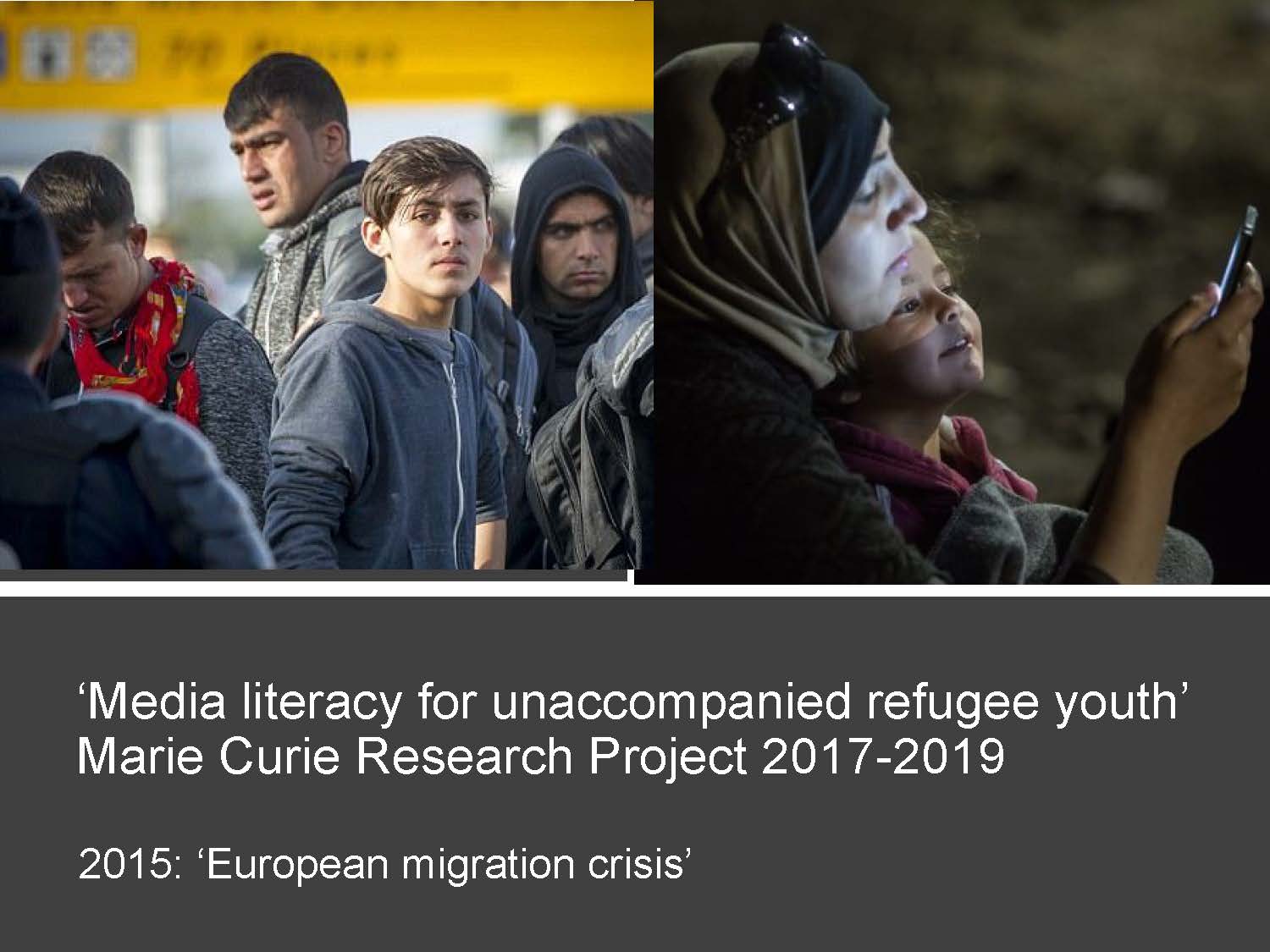 The project investigated how unaccompanied refugee children use digital technology and social media across four European countries; the Netherlands, Sweden, Italy and the UK. Dr Neag discussed with the Cafe Sci audience how these findings can assist in developing media literacy for refugee children’s civic participation.
The project investigated how unaccompanied refugee children use digital technology and social media across four European countries; the Netherlands, Sweden, Italy and the UK. Dr Neag discussed with the Cafe Sci audience how these findings can assist in developing media literacy for refugee children’s civic participation. Dr Annamaria Neag reflects on her experience of speaking at Cafe Scientifique earlier this month; “I am very much interested in public engagement, so when I first heard about Café Scientifique I thought that it would be a great opportunity to present my research findings to people outside academia. I found it quite interesting to try and frame the talk in a way that is both academically sound, but still engaging enough for the greater public. As it turned out, people in the audience were really keen in hearing about the findings, and they had pertinent questions relating to their own perceptions on migration or their experiences with refugees. All in all, it was a wonderful experience, and I’d really recommend it to anyone believing in the importance of public engagement”
Dr Annamaria Neag reflects on her experience of speaking at Cafe Scientifique earlier this month; “I am very much interested in public engagement, so when I first heard about Café Scientifique I thought that it would be a great opportunity to present my research findings to people outside academia. I found it quite interesting to try and frame the talk in a way that is both academically sound, but still engaging enough for the greater public. As it turned out, people in the audience were really keen in hearing about the findings, and they had pertinent questions relating to their own perceptions on migration or their experiences with refugees. All in all, it was a wonderful experience, and I’d really recommend it to anyone believing in the importance of public engagement”
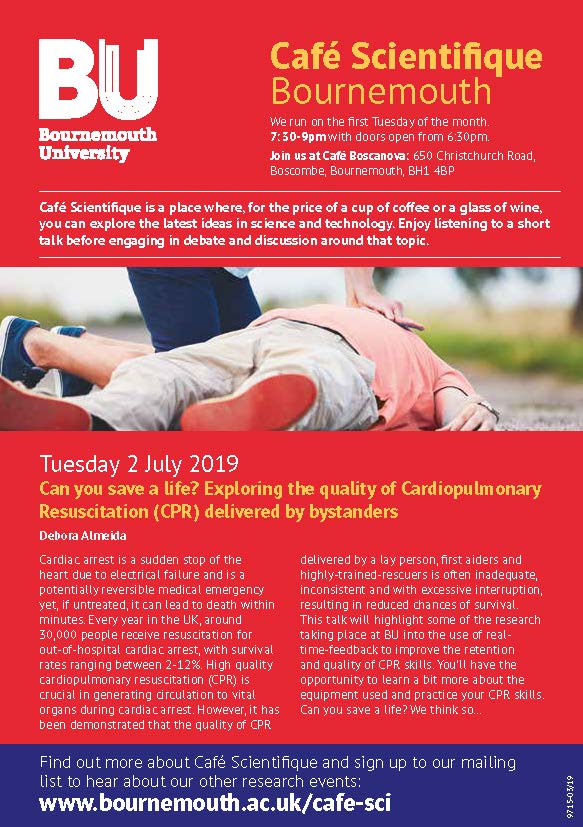


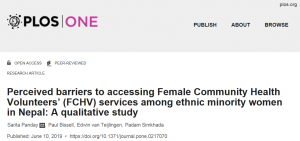


 NEW date 22 & 23 October 2019
NEW date 22 & 23 October 2019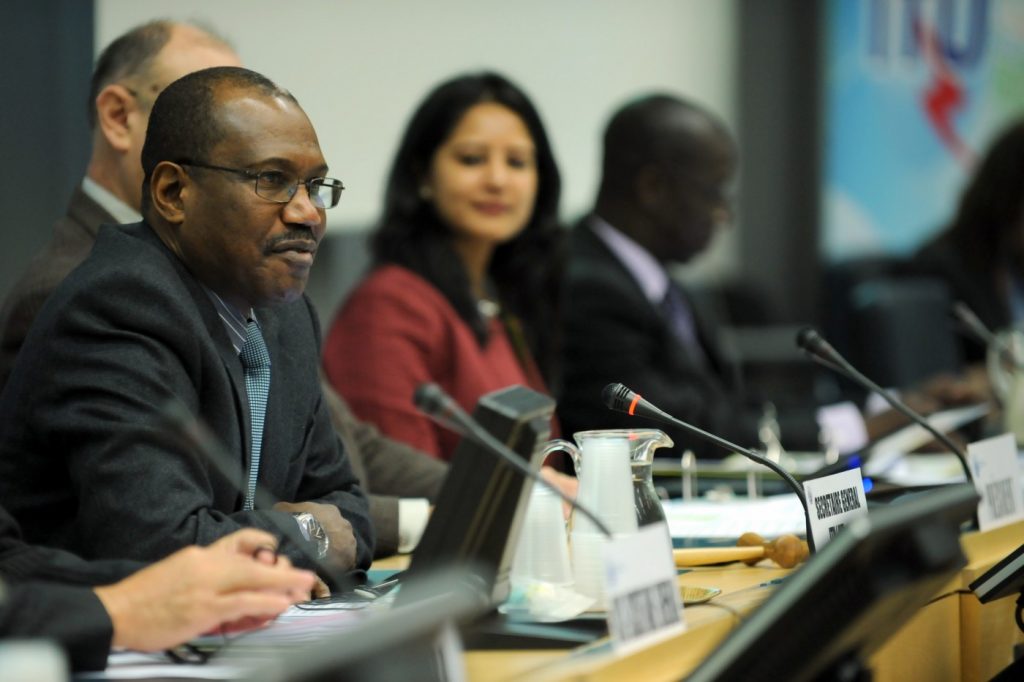






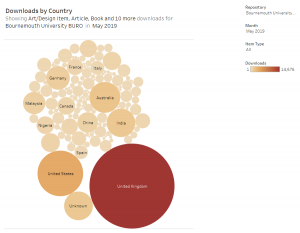












 From Sustainable Research to Sustainable Research Lives: Reflections from the SPROUT Network Event
From Sustainable Research to Sustainable Research Lives: Reflections from the SPROUT Network Event REF Code of Practice consultation is open!
REF Code of Practice consultation is open! BU Leads AI-Driven Work Package in EU Horizon SUSHEAS Project
BU Leads AI-Driven Work Package in EU Horizon SUSHEAS Project ECR Funding Open Call: Research Culture & Community Grant – Apply now
ECR Funding Open Call: Research Culture & Community Grant – Apply now ECR Funding Open Call: Research Culture & Community Grant – Application Deadline Friday 12 December
ECR Funding Open Call: Research Culture & Community Grant – Application Deadline Friday 12 December MSCA Postdoctoral Fellowships 2025 Call
MSCA Postdoctoral Fellowships 2025 Call ERC Advanced Grant 2025 Webinar
ERC Advanced Grant 2025 Webinar Update on UKRO services
Update on UKRO services European research project exploring use of ‘virtual twins’ to better manage metabolic associated fatty liver disease
European research project exploring use of ‘virtual twins’ to better manage metabolic associated fatty liver disease